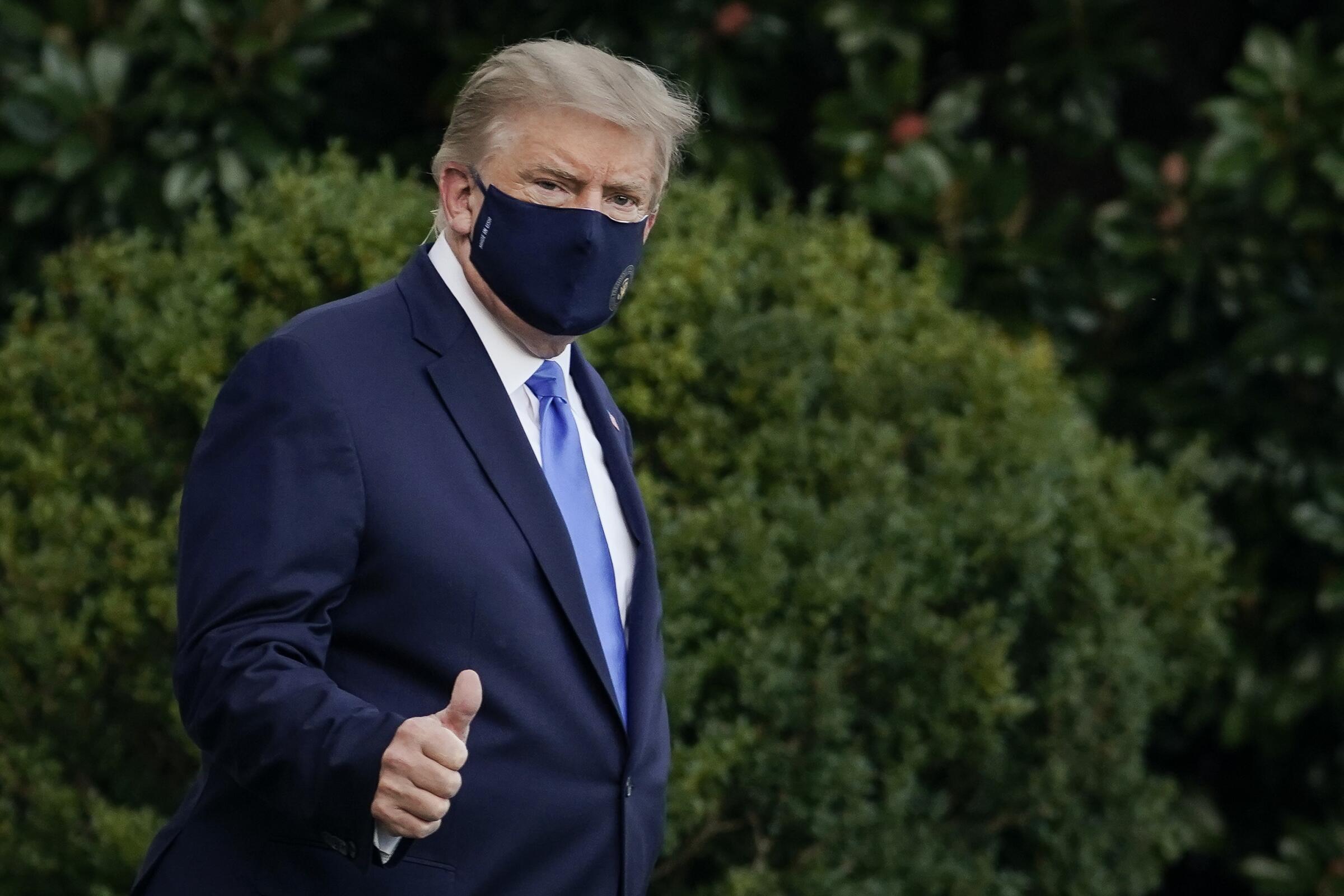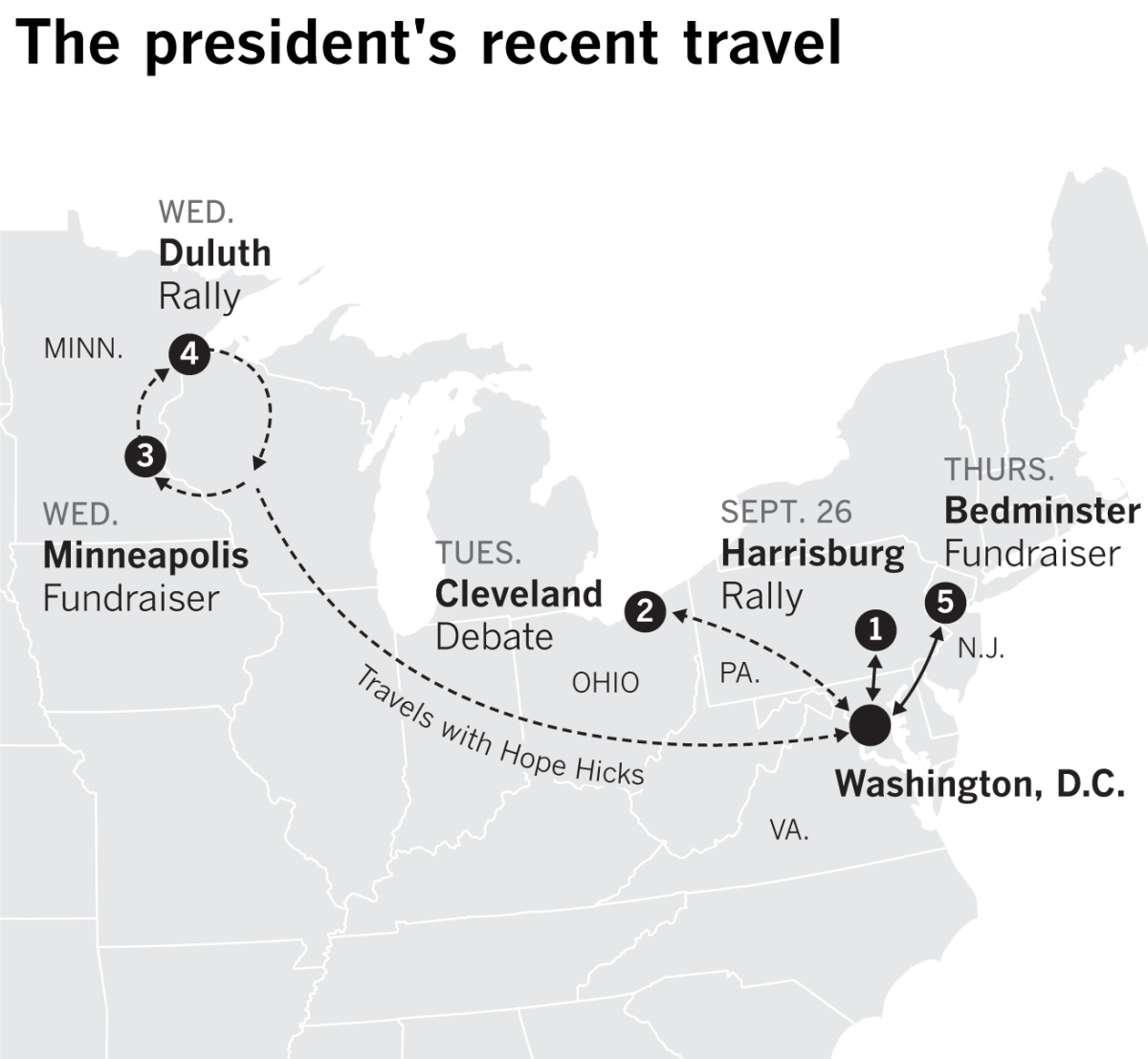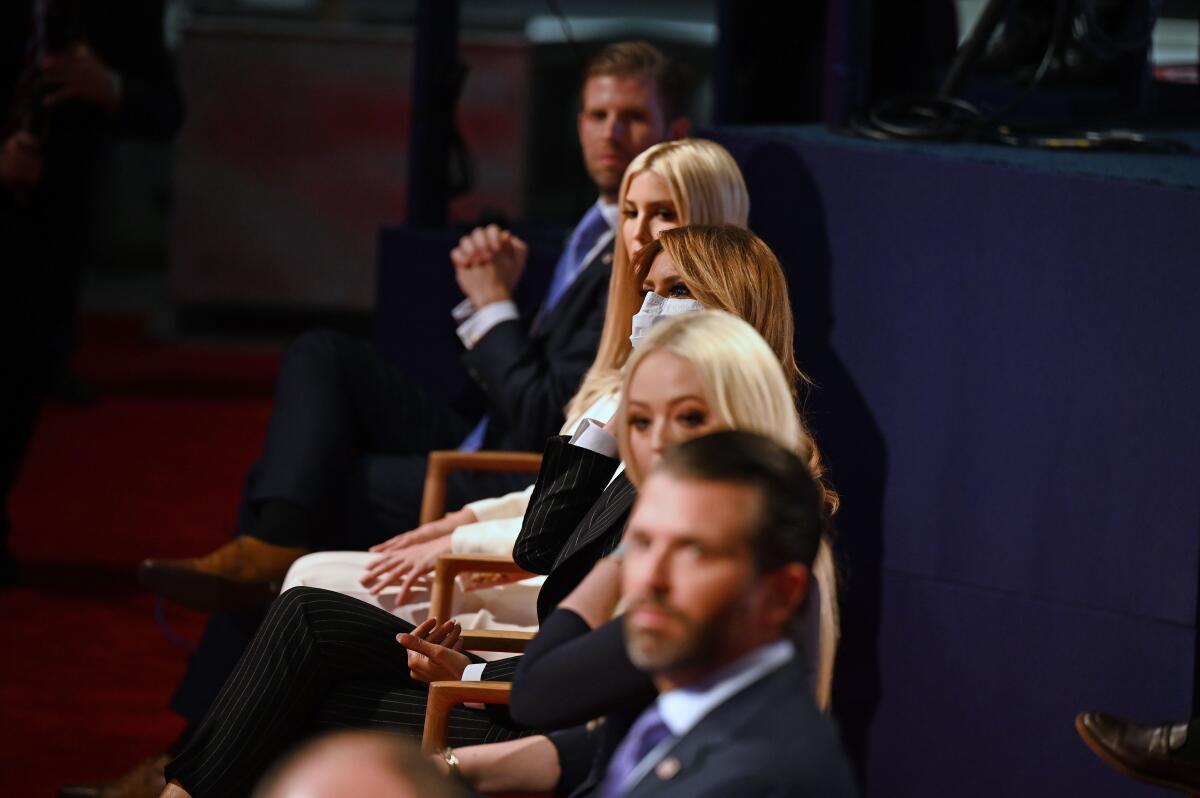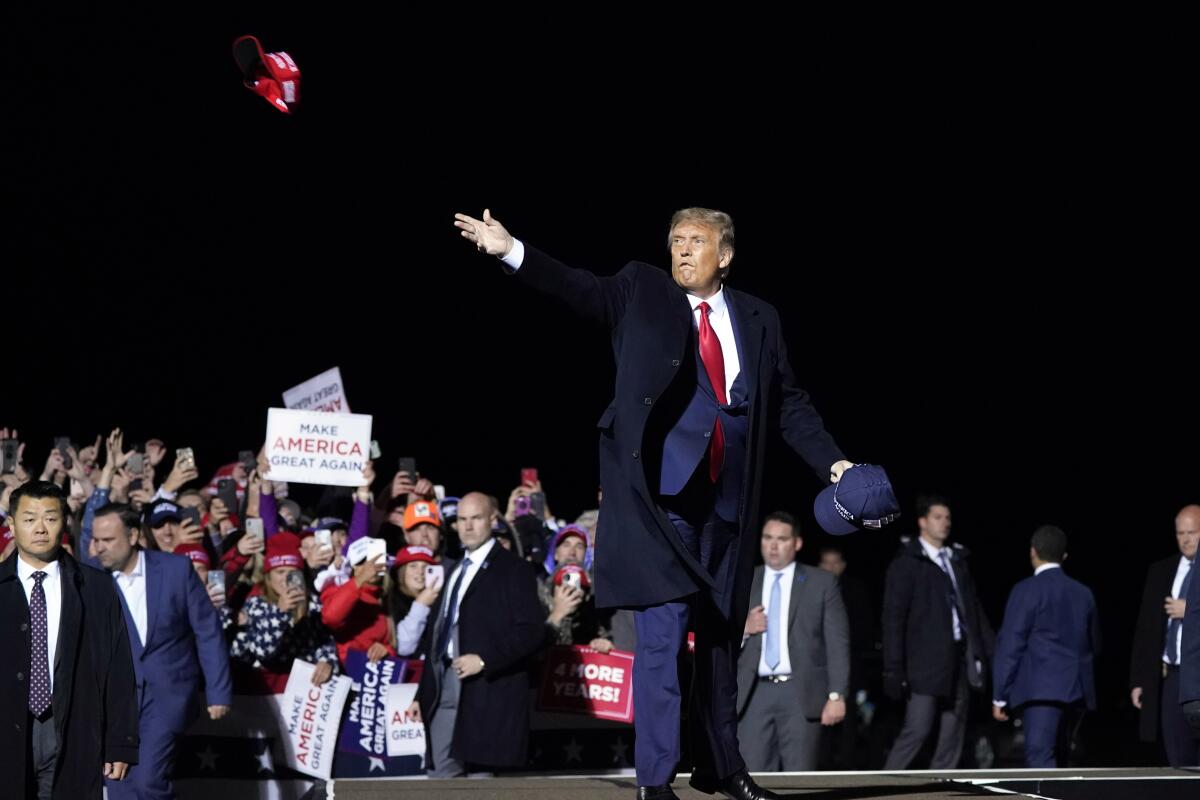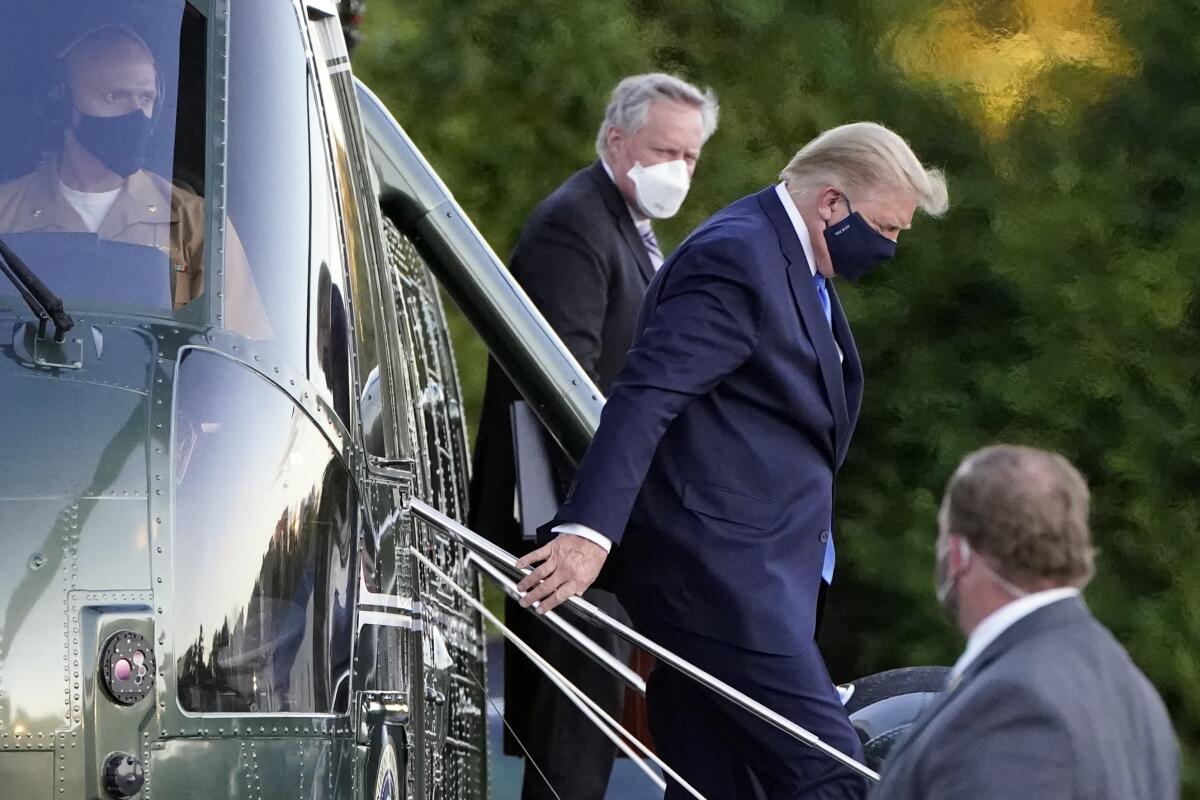When President Trump announced early Friday morning that he had tested positive for the coronavirus, the White House quickly became ground zero for the most high-profile contact-tracing effort of the pandemic.
The president and First Lady Melania Trump were tested after learning that Hope Hicks, an advisor in Trump’s inner circle, had contracted the virus. Officials have not yet explained how Hicks may have become infected, and it is unclear whether she passed it on to the president — or if perhaps the reverse might be true. But a chain was forming.
Now dozens of high-profile people who had recently met with the president at fundraisers, press events, on the debate stage and even aboard Air Force One are either getting tested or are releasing results they’ve already received. Positive tests have been announced for the following:
- President Trump
- First Lady Melania Trump
- Sen. Mike Lee of Utah
- Sen. Thom Tillis of North Carolina
- Sen. Ron Johnson of Wisconsin
- Hope Hicks, advisor to the president
- Kellyanne Conway, former advisor to the president
- Chris Christie, advisor to the president
- Bill Stepien, Trump campaign manager
- Ronna McDaniel, chairwoman of the Republican National Committee
- John Jenkins, president of the University of Notre Dame
- Nick Luna, a Trump aide
- Kayleigh McEnany, press secretary
- Stephen Miller, advisor to the president
The outbreak is believed to have happened over the last week as the president and his entourage made a series of trips to promote his reelection campaign.
Results of tests for Vice President Mike Pence, Treasury Secretary Steven T. Mnuchin, Democratic presidential nominee Joe Biden and other leaders have come back negative.
For now.
Dr. Otto Yang, an infectious-disease specialist at UCLA, said it takes roughly five to seven days for a coronavirus infection to trigger a positive test result. If Biden contracted the virus during Tuesday night’s debate, for example, he might not receive a positive test result until Sunday or Monday.
Indeed, the full extent of the White House outbreak, including how many people the president himself may have infected, will not be known for at least a month, if not longer, said Ira Longini, an infectious-disease epidemiologist at the University of Florida.
“We can’t point the finger at this point,” he said. “It is going to take time.”
In the meantime, here’s a look at some of the key events on the president’s calendar that indicate where he could have caught the virus — or spread it to others.
